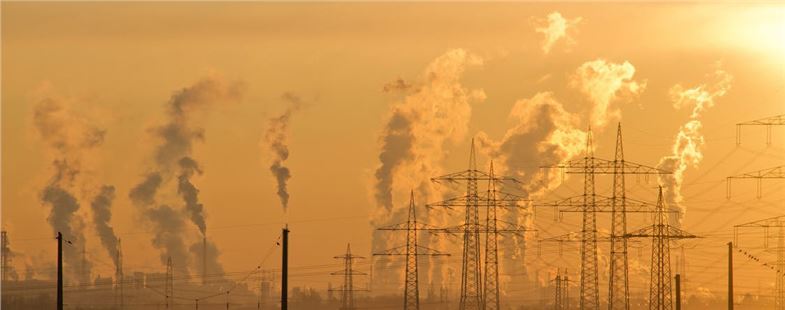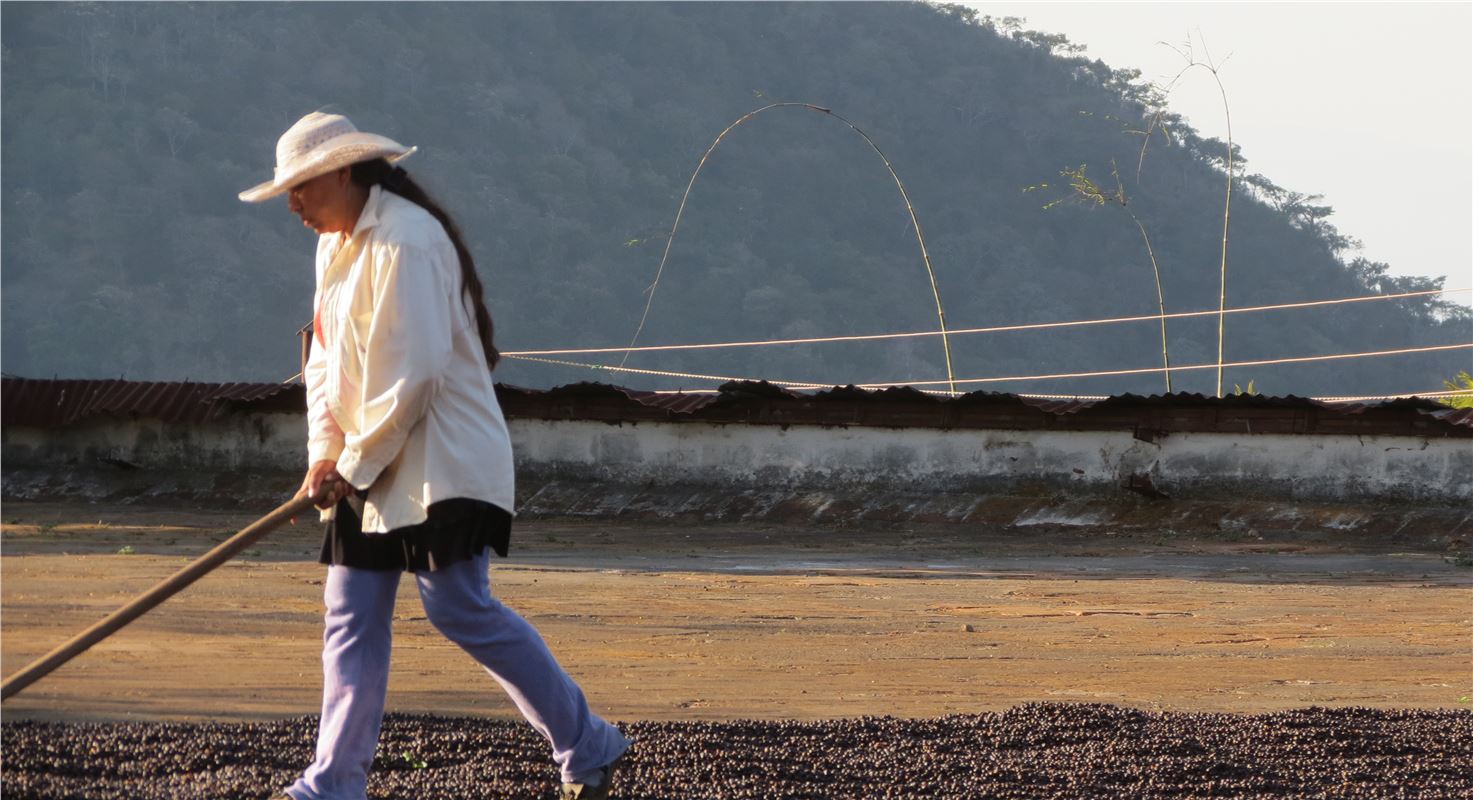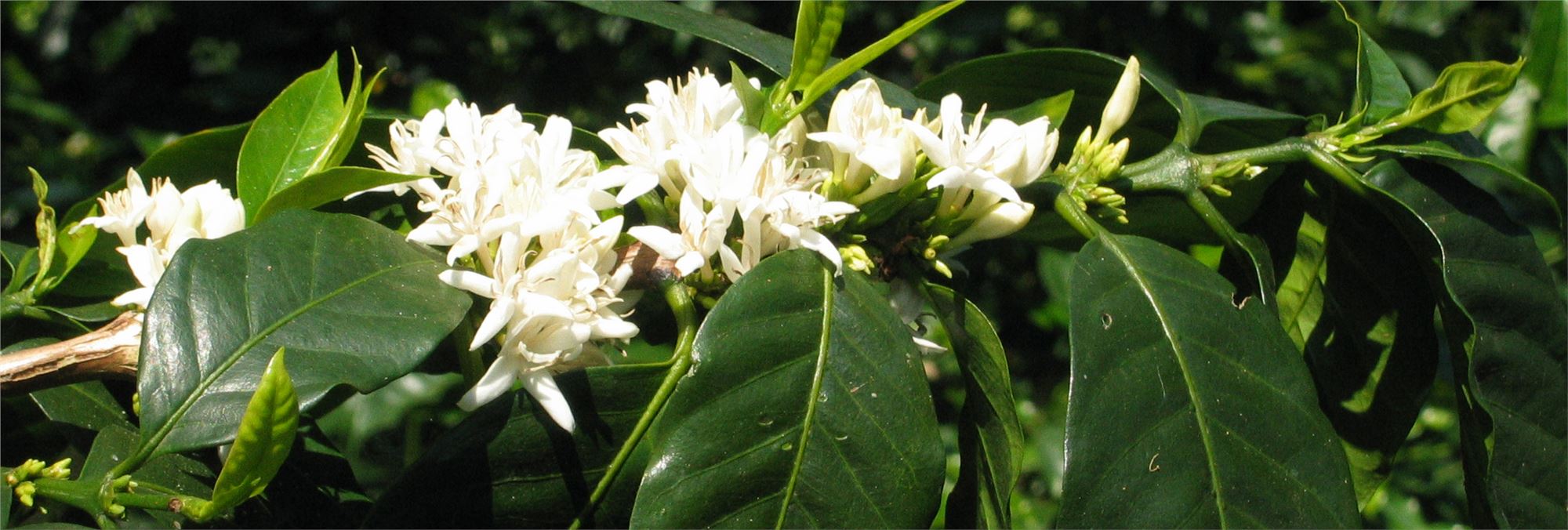'Climate change itself is probably doing good...'

What coffee science has to say about Tony Abbott’s recent speech on Global Warming. Article by India Read.
On Monday 9th October, Australian ex-Prime Minister Tony Abbott gave a speech he titled ‘Daring to Doubt’ to the London-based Global Warming Policy Foundation (GWPF).
His full speech can be found here, and it’s an interesting read. We think it’s important to hear out as many sides of the argument as possible, especially since the scale of the issue requires global co-operation.
During his talk, Mr. Abbott warned against submissively accepting statements such as ‘the science is settled’, and ’99 per cent of scientists believe…’ when discussing climate change. Criticising the assumption that there is no further need for enquiry in these cases, he cautioned that perhaps our current science is misleading us about the dangers of global warming.

A worker turning natural-processed coffee cherries to ensure even fermentation.
We’d say it’s always healthy to have a measure of scepticism in the current age of ‘fake news’ and ‘alternative facts’. We do, however, want to point out some particularly concerning evidence from a couple of well-known sources that especially applies to our own industry, in the hope it may help provide some clarity.
At one point, Mr. Abbott claimed that there is “evidence that higher concentrations of carbon dioxide (which is a plant food after all) are actually greening the planet and helping to lift agricultural yields”. We can’t speak for every species in the plant kingdom, but we would like to highlight this study published in Scientific Reports in 2015 by a group of UC Davis scientists (layman-friendly summary here).
The study first establishes that coffee trees need a certain amount of nitrogen to grow, which they usually acquire from soil. The results of the research showed that in absence of adequate nitrogen in the soil, the plants will extract it from the atmosphere to supplement the needs of the organism. The study also found in addition that as levels of carbon dioxide were increased, the ability of the coffee tree to take nitrogen from the atmosphere dropped, and the tree struggled to grow.

Freshly-bloomed coffee blossom
“The bad news is, in a world where we have rising CO2 levels, we will likely see less and less nitrogen uptake from the air,” Silva, one of the researchers has commented. “And, if soils are limiting, we could see a widespread decrease in tree growth.”
Another problem the coffee industry faces is the impact of rising heat, which Abbott suggested ‘might even be beneficial,’. One study from Oregon State University examined the result of bringing a coffee tree’s leaves to a leaf temperature that simulates ‘a realistic result of global climate change’ for a minimum of 45 minutes. The plant subsequently becomes unable to produce flowers and fruit because of heat-stress, and decreases water-use efficiency. The longer the heat is sustained, the worse and more lasting the impact.
Then there is the Climate Institute’s much-cited report released in 2016, ‘A Brewing Storm’, that indicated coffee production could be cut by up to 50 per cent in a few decades because of the effects of climate change.
As Mr. Abbott might point out, one or two studies doesn’t necessarily mean the science is ‘settled’, and that certainly further research may be needed to convince some.
We at Bennetts are unlikely to be alone, however, when we say we are fairly convinced of the dangers that Climate Change presents to our industry and the broader global community. Mr. Abbott is welcome to seek ‘further inquiry’, but in the meantime, we’ll be looking to support those willing to take the next step; action.


